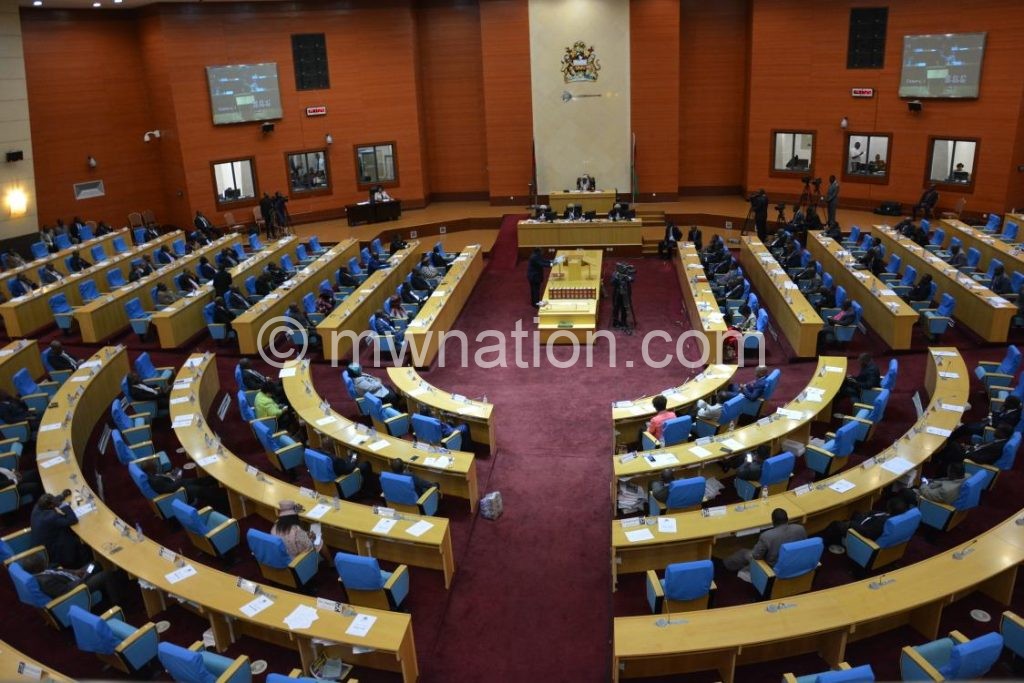A glimpse at the new Pension Act
On March 1 2023, the new Pension Act came into force replacing the old Pension Act, which was passed just some 12 years ago.
This shows that stakeholders found the old Act unsatisfactory. Instead of piece-meal amendments, the legislature took a bold decision to repeal the old Act all together, with overreaching improvements.
The obvious aims of pension law are to protect beneficiaries in the event of death of the member and alternatively to provide for the pensioners themselves once they retire and are no longer in gainful employment. In that regard, pension helps a pensioner to maintain a standard of living in retirement. Savings provide important supplemental income for unforeseen expenses such as medical bills, which normally accumulate with age.

An employer may now set up a provident fund over and above the pension fund for the benefit of employees. The new Act particularly promotes a culture of voluntary saving for retirement. This is mostly useful for self-employed persons who often run into financial difficulties if they do not plan for their retirement.
In order to encourage voluntary savings, 40 percent of such investment can be withdrawn after five years and 100 percent after 10 years. This supports the adage that ‘it is better to live rich than to die rich.’
The retirement age has been maintained between 50 and 70 years. Minimum contributions have also been maintained at 10 percent for the employer and five percent for the employee. Late remittances outside of the 14th of every month attract penalties and monthly interest. Hopefully, this will address non-compliance which has been rampant.
In 2011, the Malawi Government was given up to 2013 to put all civil servants on pension. However, the national budget could not accommodate the pension bill; hence, a number of deferments. The new Act guarantees the welfare of civil servants as government is no longer exempt. This is good news for pension entities as they will have more funds at their disposal for investment. The economy in general is also meant to benefit from this initiative, considering that government is the largest employer.
The National Pension Fund is established as a body corporate with perpetual succession. It is a default fund that will be operating alongside other registered pension funds, together composing the Mandatory Occupational Scheme.
A proposal to have an independent regulator for pension entities was dropped. Considering the size of our economy, it is sensible to maintain the Registrar of Financial Institutions as the regulator of all financial institutions, including pension entities. In order to capacitate the office of the registrar, a supervisory levy has been introduced.
In addition, the Act has rationalised the functions and powers of the registrar in relation to pension funds. It is saddening that currently, a whoping K30 billion is due from employers in pension arrears. The new Act evidently mandates the registrar to register and inspect employers. Licensing requirements have been enhanced, including enhanced penalties for non-compliance. Business premises may be physically closed and penalties and fines now run up to K150 million coupled with imprisonment for a meaningful 10 years. The registrar may also name and shame non-compliant employers through newspapers. He may also issue a certificate of compliance which will enhance the good standing of employers. It is commendable that the Act has also provided for personal liability for managers guilty of non-compliance.
Further, the registrar or employee representatives may commence court action to enforce compliance. The Act has also enhanced corporate governance requirements for pension entities, including a requirement for internal auditing and various reporting requirements. The orderly winding up of pension entities is specifically provided for under the Act. This is different from the old Act where general insolvency rules relating to all financial institutions were applicable to pension entities.
This approach is laudable as pension funds are unique and in the event of liquidation, peculiar rules have to be applied for the primary benefit of members.
Where a member is aggrieved by a decision of a pension entity, they can now formally appeal to the registrar. If unsatisfied with the registrar’s decision, they can further appeal to the Financial Services Appeals Committee and much further to the High Court. It is submitted that this regime has given a member a much more satisfactory tier of appeal and will go a long way in managing dispute resolution.
The Act has comprehensively provided for programmed withdrawals and increased the amount payable on retirement. The sum used to be 40 percent and now increased to a maximum of 50 percent. This is commendable as pensioners will have more financial resources at their disposal as soon as they retire while maintaining the freedom to retain the investment.
The Act has streamlined the provisions on early payment of benefits. For instance, a member who has five years or less to retire, may access their pension benefits. This option is beneficial to employees who wish to leave employment and concentrate on other well-meaning activities, while in good health. Such funds may also be used to build a retirement home.
There is now a shorter period within which benefits can be paid to a member who has permanently left employment. The period used to be six months and now reduced to three months. Considering the high unemployment rate in Malawi at seven percent, this should be a huge relief to disengaged employees. It is hoped that this will continue to be a safety valve to guard against employees quitting their jobs unnecessarily, which might create a run on pension funds.
As observed above, the new Act has extensively improved the regulation of pension schemes in Malawi, all for the benefit of the employee. The new system aims at providing adequate, affordable, sustainable and robust retirement income. A call, therefore, goes to all stakeholders, to ensure that these all-embracing provisions are enforced with the gravity that they deserve as pension is a matter of life and death.




